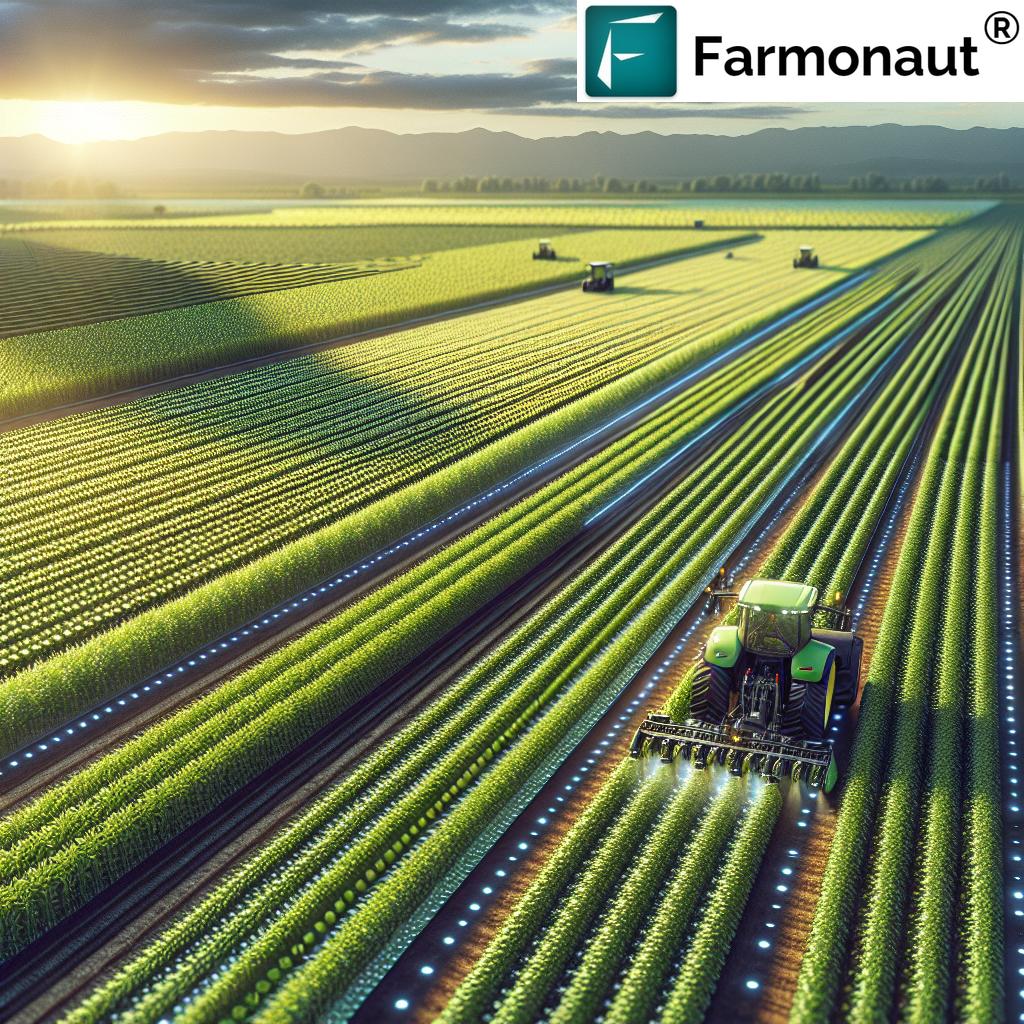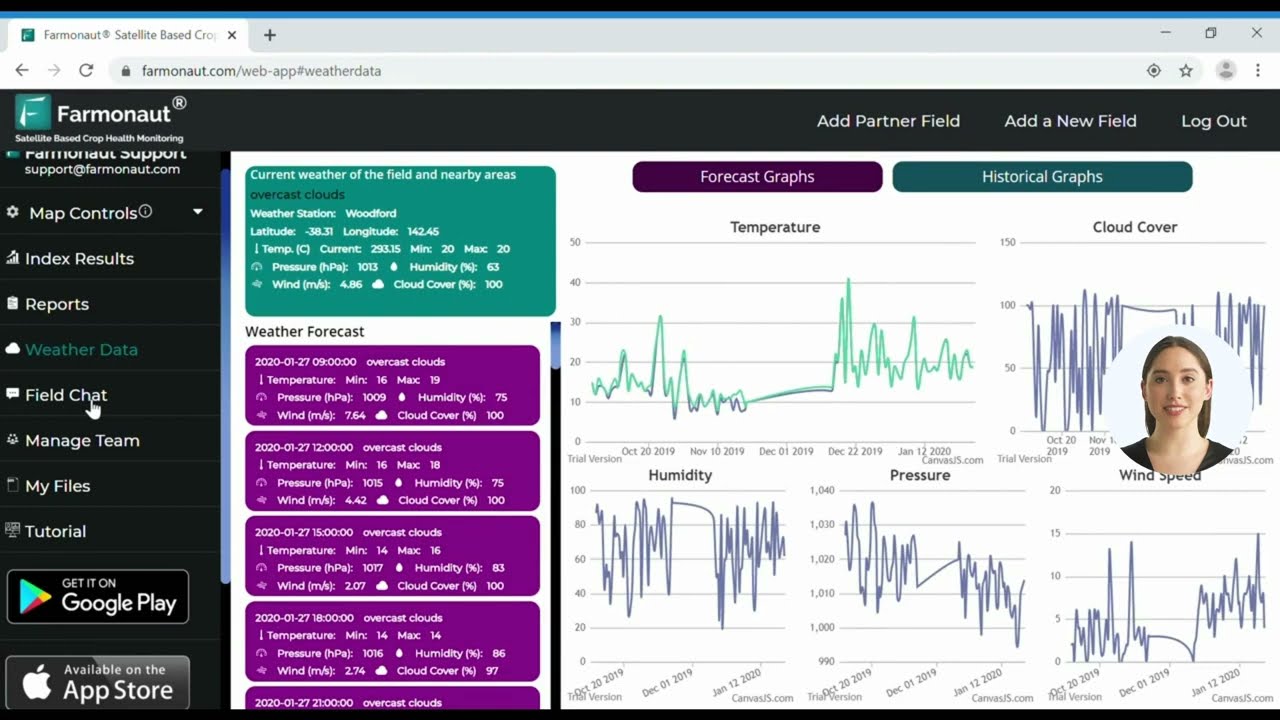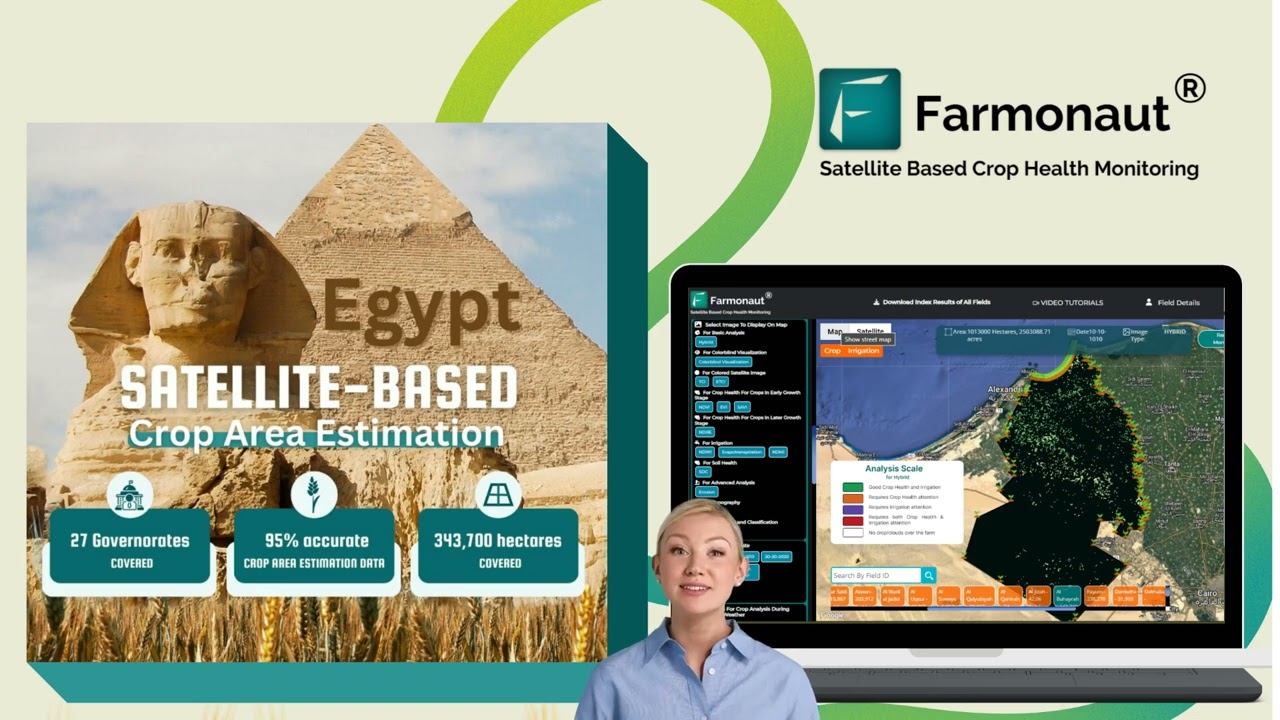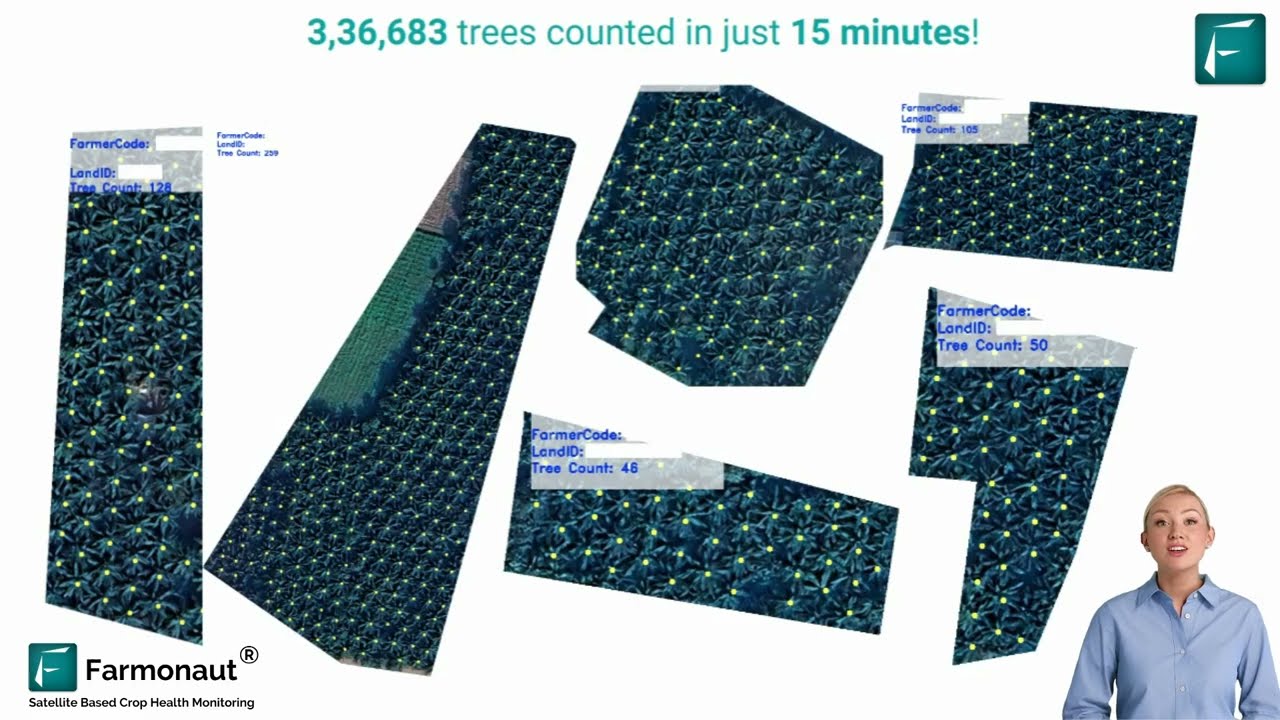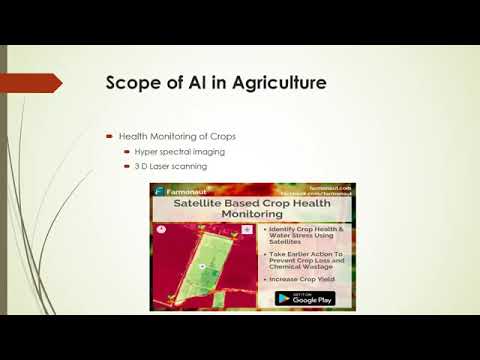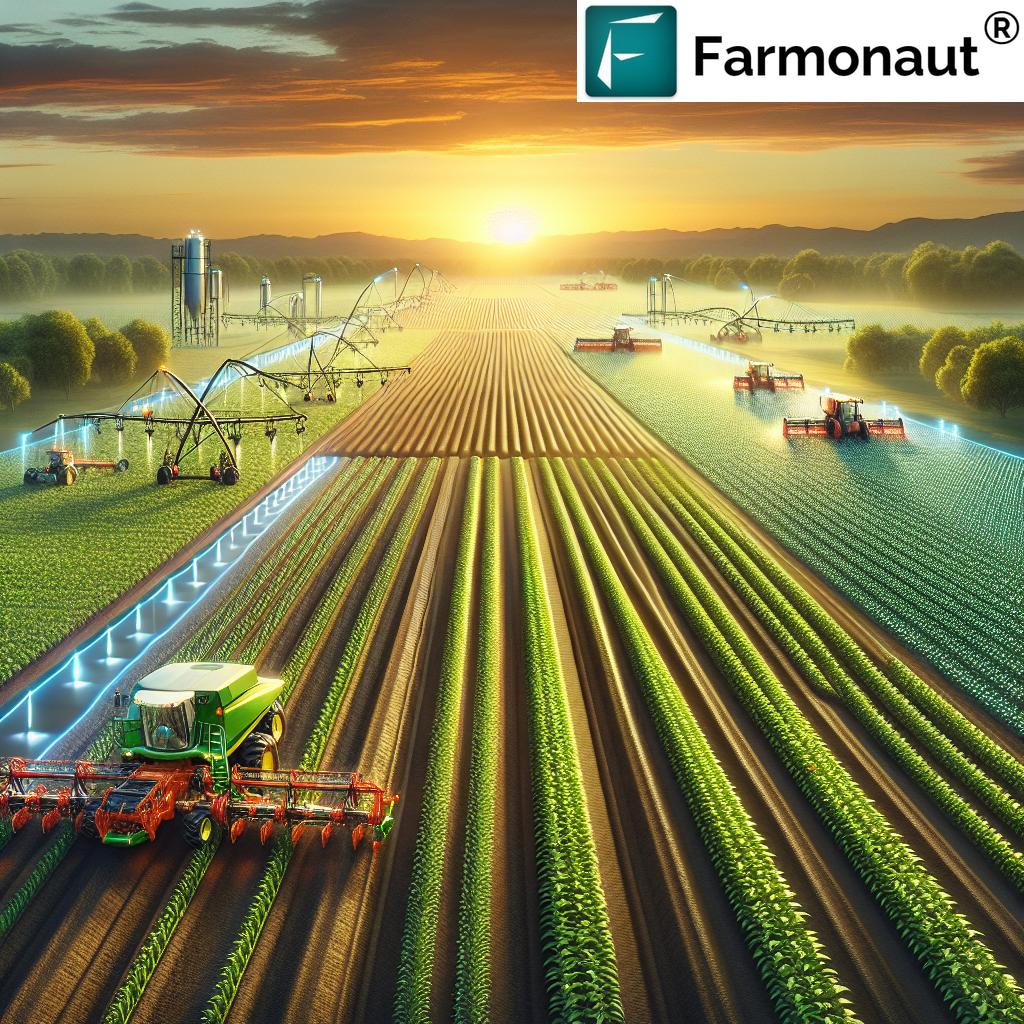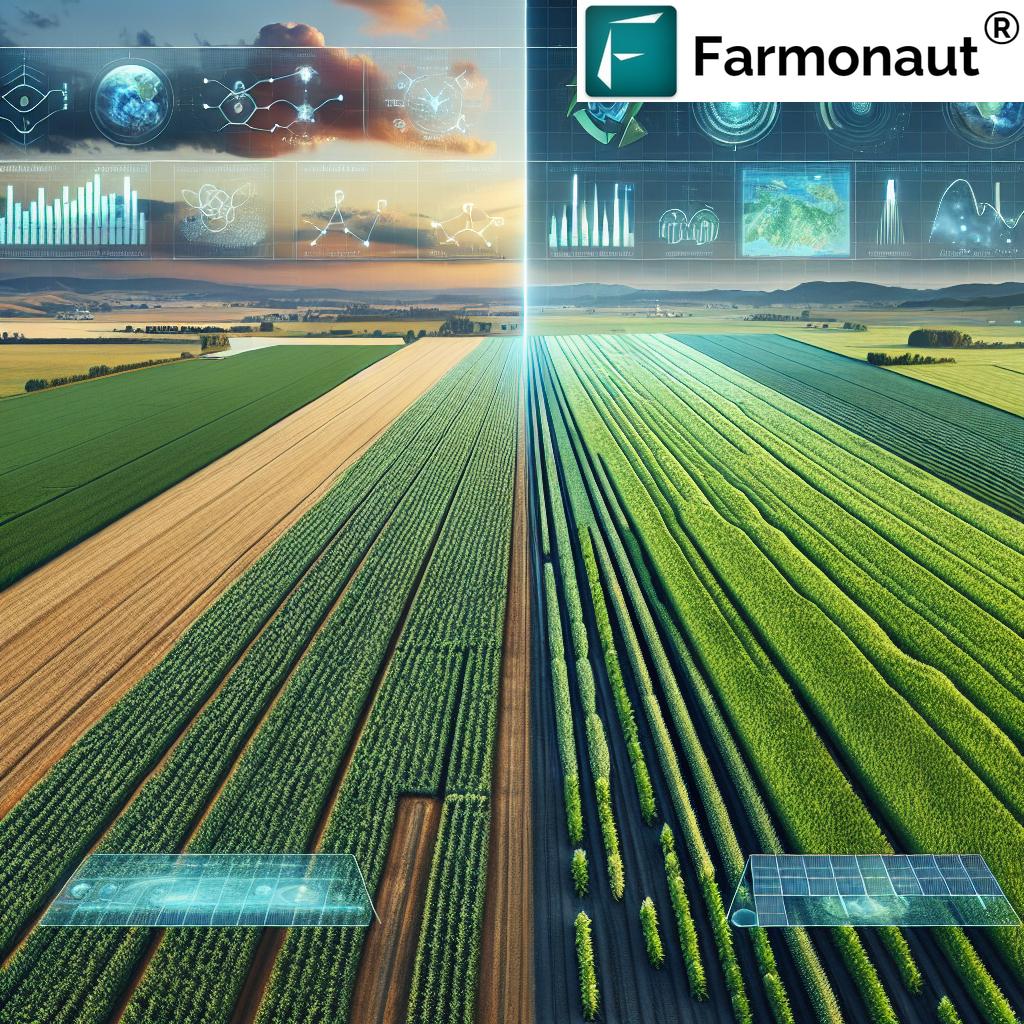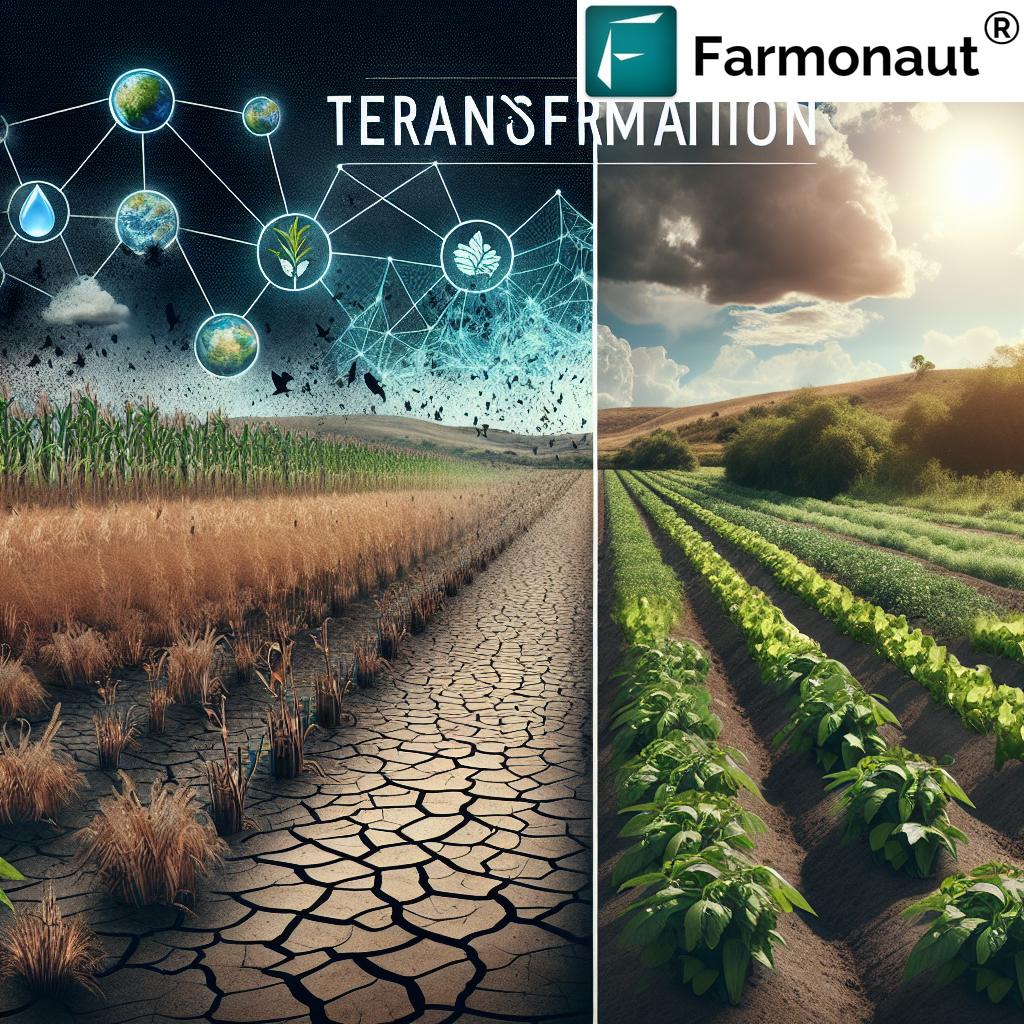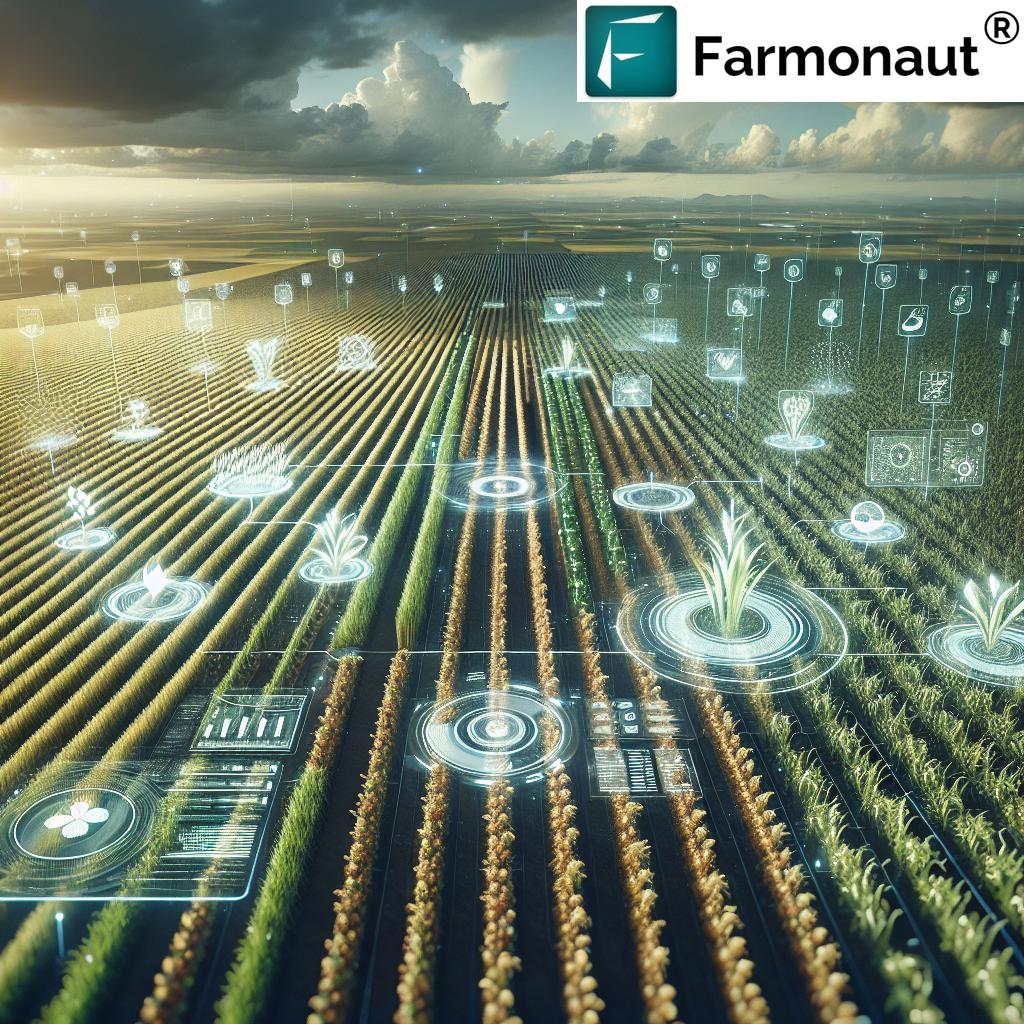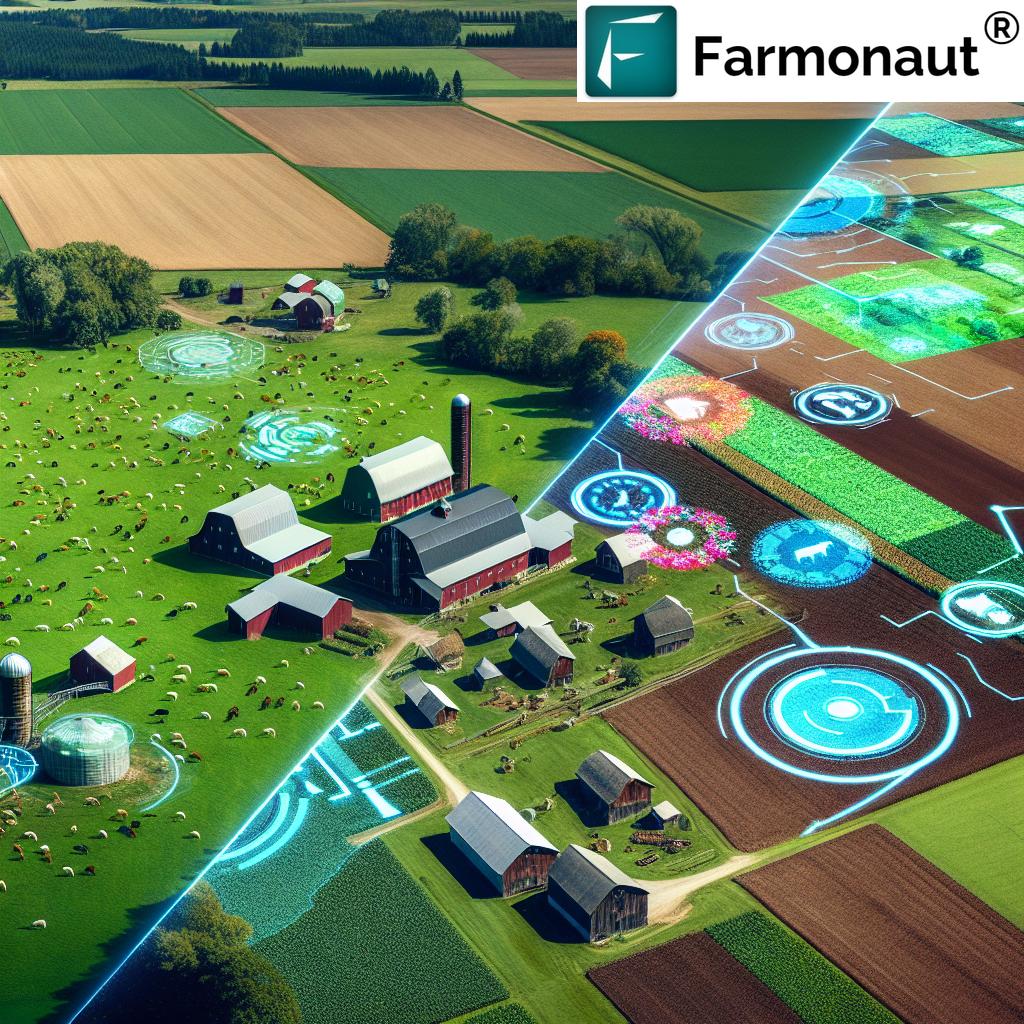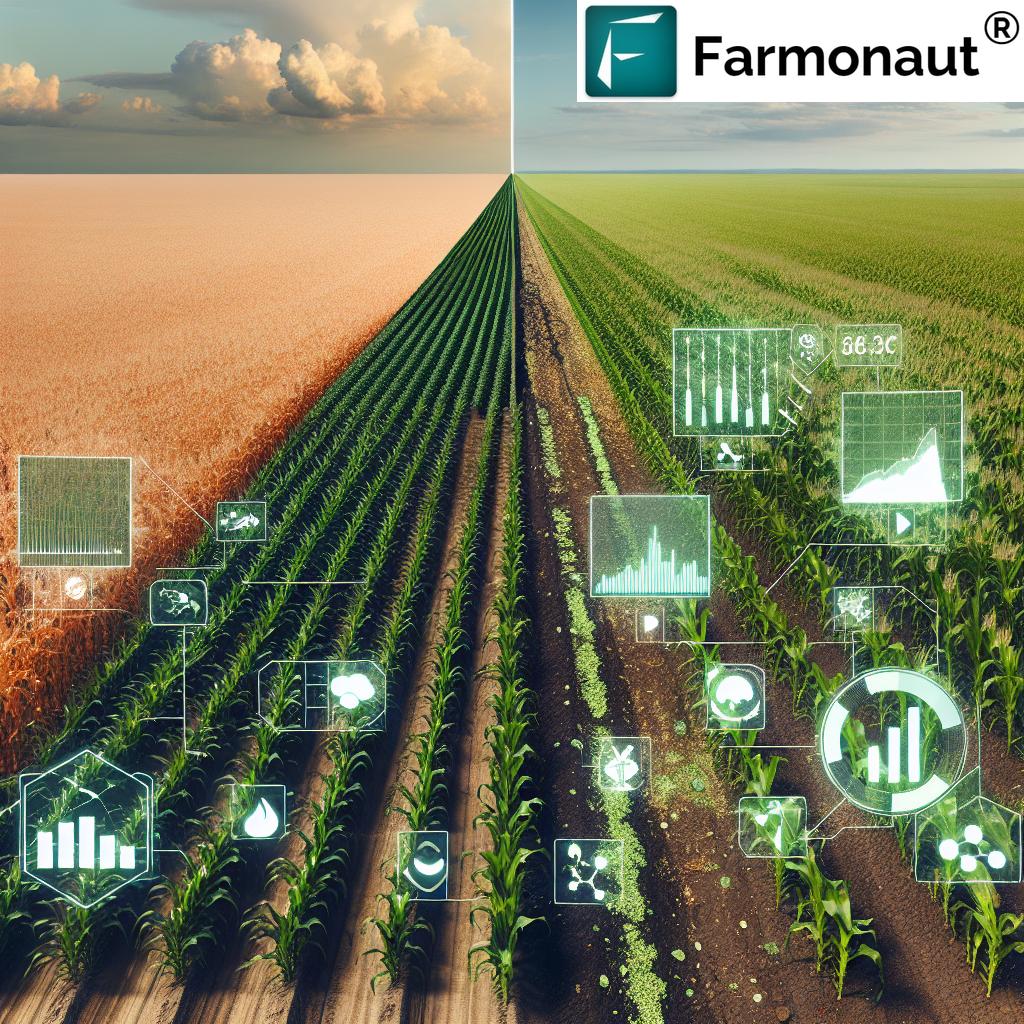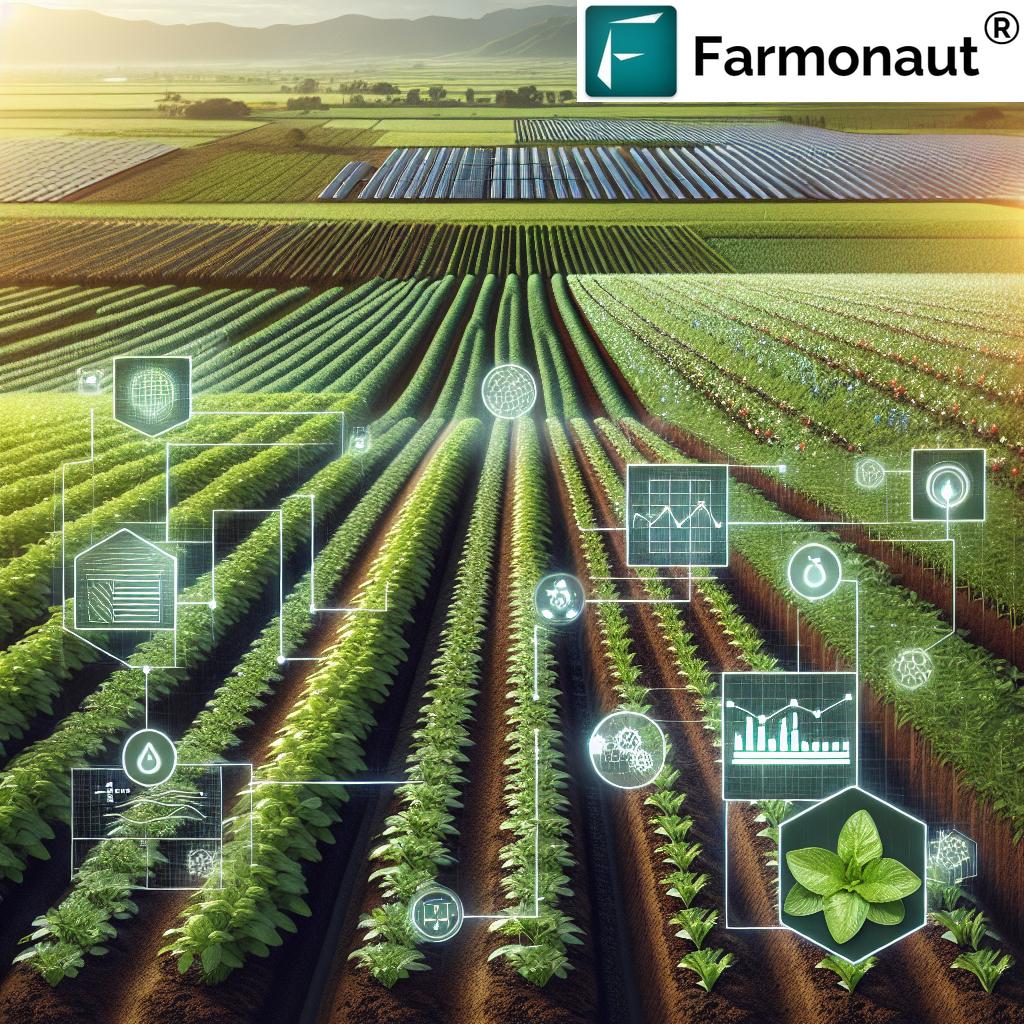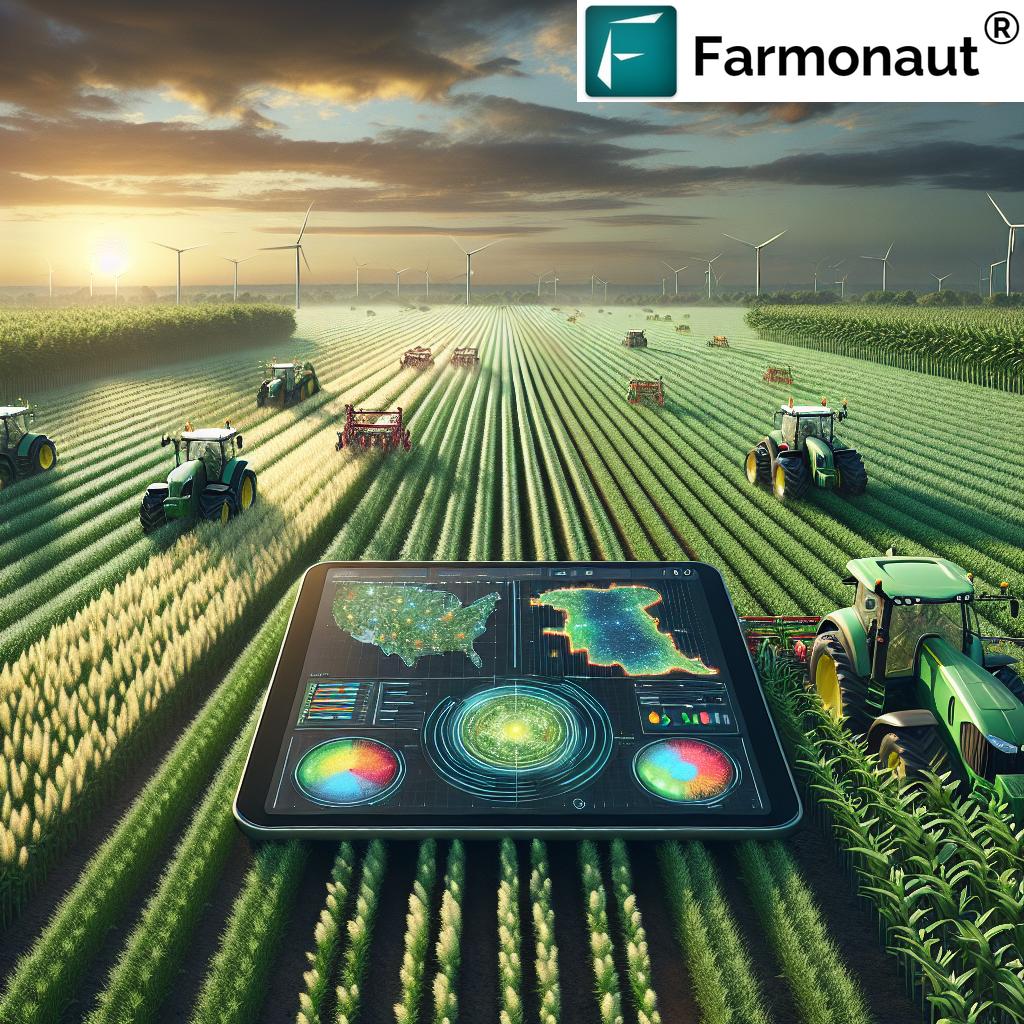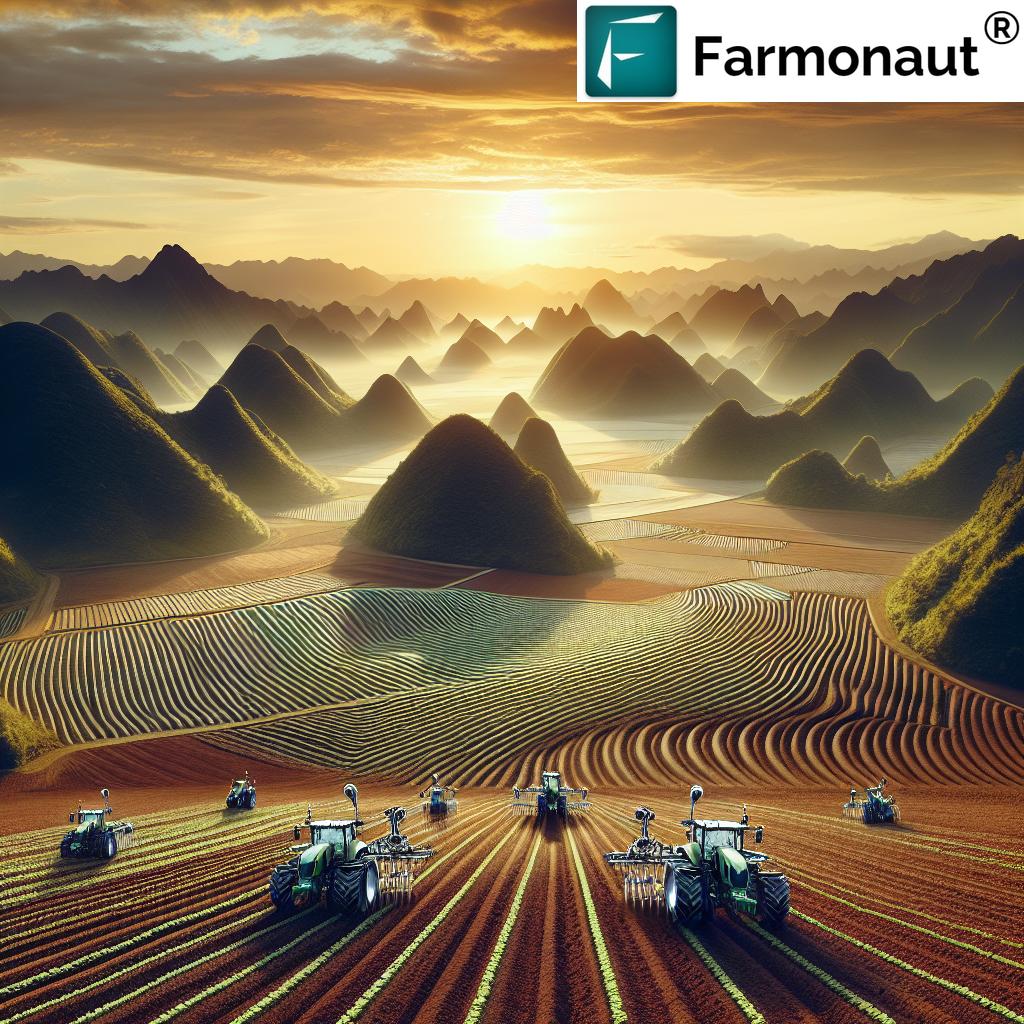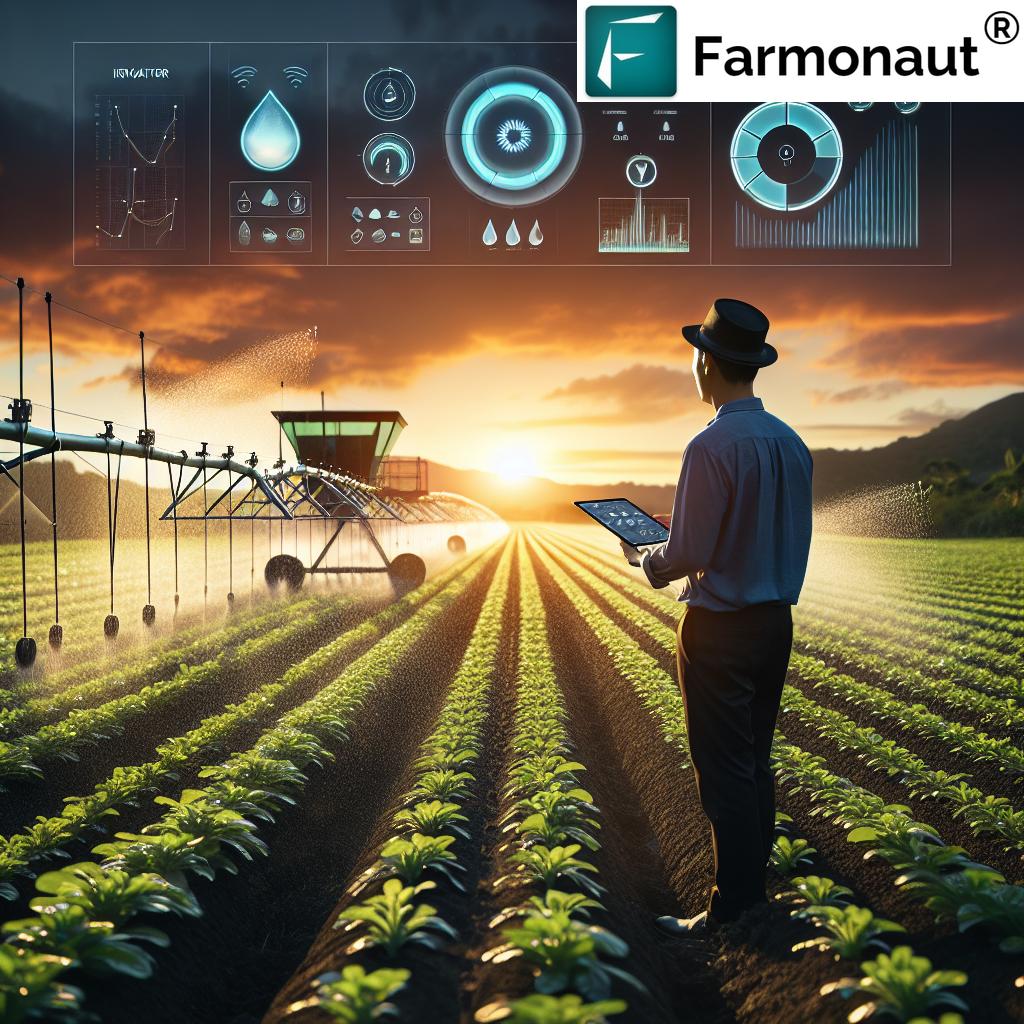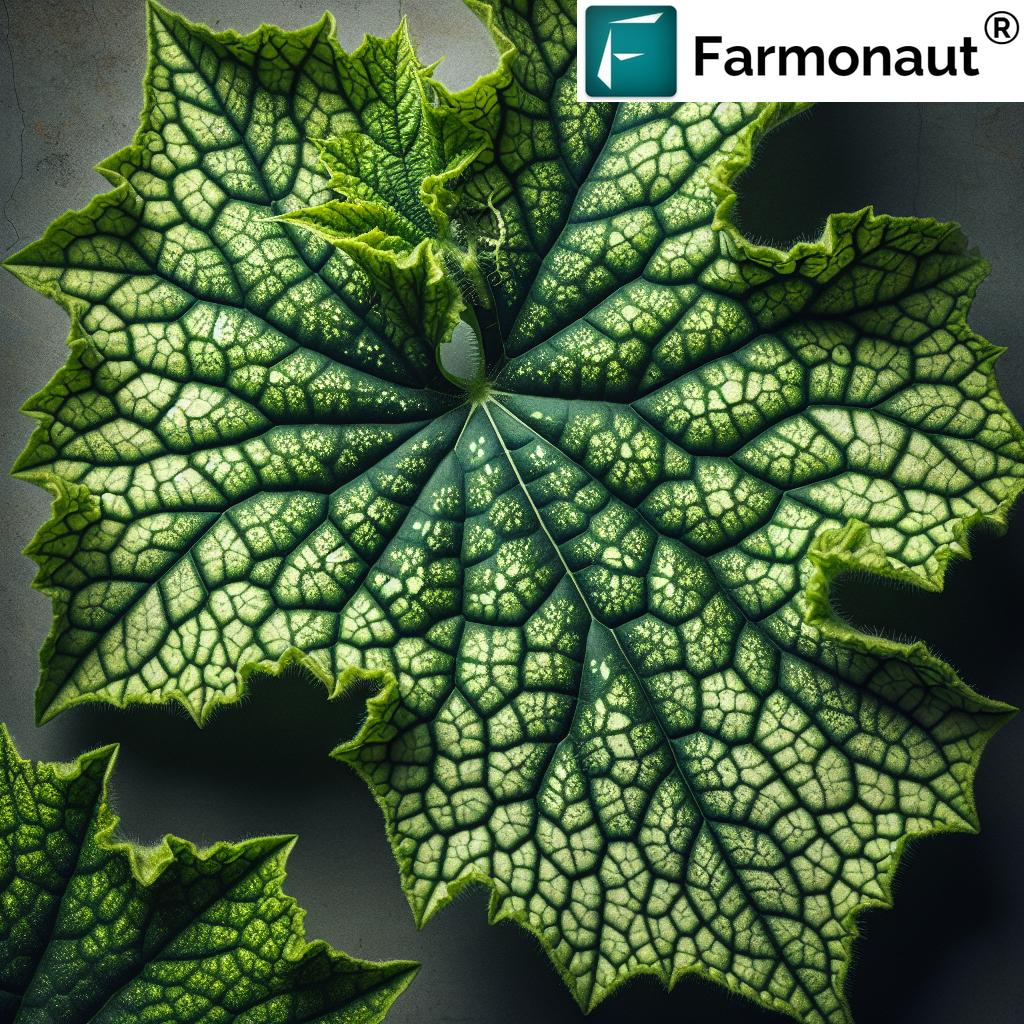Agriculture Technology: 7 Mind-Blowing Farming Innovations
As agriculture faces mounting challenges—from unpredictable climate patterns and global food security demands to labor shortages and the ever-increasing need for sustainable farming—the role of technology in reshaping the agricultural landscape is more crucial than ever. We are now witnessing a revolution: agriculture technology innovations are transforming the way farmers manage crops, optimize resources, monitor soil and weather, and ensure food safety and traceability.
In this comprehensive guide, we explore seven of the most mind-blowing advancements redefining agriculture today. By delving into precision agriculture, IoT in farming, autonomous farm machinery, drones in agriculture, machine learning and AI, biotechnology, blockchain in supply chain management, and more, we reveal practical applications, benefits, and challenges for farmers worldwide. Farmonaut, as a leader in agricultural technology, is making these innovations accessible and empowering the global farming community.
- What is precision agriculture, and why is it the foundation of modern farm management?
- How are smart farming solutions streamlining resource usage and minimizing environmental impact?
- Which farming technologies and platforms should you adopt for better yield, efficiency, and sustainability?
Table of Contents
- Precision Agriculture & Smart Farming Solutions: The Game Changer
- Autonomous Machinery and Robotics: Redefining Field Operations
- Drones in Agriculture: Eyes in the Sky for Crop Monitoring
- Controlled-Environment Agriculture (CEA): Pioneering Consistent Yields
- Biotechnology & Genetic Engineering: Next-Gen Crop Improvement
- AI & Machine Learning in Agriculture: From Data to Decisions
- Blockchain in Supply Chain Management: Transparency from Farm to Table
- IoT in Farming: Connected Fields for a Connected Future
- Bonus Innovations: Nanotechnology and Cellular Agriculture
- Comparison Table of Key Agricultural Innovations
- Challenges and Future Prospects in AgTech
- Why Farmonaut Stands Out: Driving Accessible Precision Agriculture
- Farmonaut Subscription Plans
- Frequently Asked Questions (FAQ)
Let’s dive into the future of agriculture and uncover how these mind-blowing technologies are transforming our farms and food systems.
Precision Agriculture & Smart Farming Solutions: The Game Changer
If there’s one technology setting the foundation for a sustainable future in farming, it’s precision agriculture. Precision agriculture uses GPS, IoT-based sensors, and remote sensing to manage field variability, monitor crop conditions, and ensure resources like water and fertilizers are optimized to boost yield and reduce environmental impact.
What Is Precision Agriculture?
At its core, precision agriculture involves collecting data on soil, weather, and crop health, then leveraging this data to make informed farm management decisions. By mapping field variability, farmers can customize inputs, monitor growth stages, and predict potential issues long before they escalate.
- Key Technologies Used: GPS-guided equipment, variable rate technology (VRT), cloud platforms, soil and weather sensors, and multispectral satellite imagery.
- Main Benefits: Up to 20% yield increase, optimized fertilizer and pesticide application, lower waste, and minimized environmental impact.
- Real-World Example: With VRT, fertilizer and pesticide are applied precisely where needed, not blanket-sprayed, reducing costs and chemical runoff.
- Advanced Platform Highlight: Farmonaut’s satellite-based crop health monitoring makes precision farming affordable and scalable for farms of all sizes, providing crop and soil health reports directly on your smartphone or browser.
The integration of smart farming solutions has also enabled rapid adoption of precision agriculture for resource-constrained farmers. By automating monitoring and control systems for irrigation, nutrient management, and pest detection, smart farms can maximize yields while conserving water and energy.
Did you know? Automated crop monitoring technology and data-driven resource management in precision agriculture have proven to increase crop output while reducing resource wastage globally!
Autonomous Machinery and Robotics: Redefining Field Operations
The rise of autonomous farm machinery—from self-driving tractors to multi-functional field robots—continues to address long-standing challenges in agricultural labor, efficiency, and productivity.
- Autonomous Tractors & Equipment: Giants like John Deere now offer tractors and planters that navigate fields autonomously, executing precise tasks like seeding, spraying, and even variable rate fertilization with minimal human oversight. These machines use sophisticated sensors, AI, and GPS for guidance and task execution.
- Agricultural Robotics: Agribots are capable of complex jobs, including harvesting, weeding, and crop health monitoring. For example, robotic arms can selectively detect and harvest only ripe produce or mechanically eradicate weeds, increasing efficiency and reducing pesticides.
- Operational Benefits: Addressing labor shortages, reducing operational costs, enabling 24/7 work cycles, and generating detailed data to further improve farm management.
- Efficient Resource Use: Autonomous machinery, when integrated with smart sensor systems, can adapt inputs in real time according to soil, crop, or weather conditions.
Farmonaut’s fleet management platform augments the use of autonomous and semi-autonomous machines by allowing for seamless scheduling, monitoring, and cost optimization of vehicle fleets, regardless of field or machinery size.
Drones in Agriculture: Eyes in the Sky for Crop Monitoring
Unmanned aerial vehicles, or drones, are rapidly becoming an essential part of the agricultural technology innovations suite. They provide real-time, high-resolution imagery and data, empowering farmers to make timely interventions.
- Crop Monitoring Technology: Drones equipped with multispectral and thermal cameras can monitor field variability, map plant health, and detect irrigation issues or pest infestations before they’re visible to the naked eye.
- Soil Analysis: Drone surveys help assess soil conditions, identify compaction areas, and enable precise pre-planting decisions.
- Targeted Spraying & Seeding: Lightweight drone fleets apply fertilizers or pesticides only where needed and can accurately drop seeds in prepared plots, increasing cost efficiency and minimizing waste.
- Rapid Reporting: Drone imagery can be analyzed using AI for quick and actionable farm reports, helping optimize yield and resource allocation.
Farmonaut’s integration of blockchain-based crop traceability means that data collected from satellites, drones, and other field sensors are securely logged. This guarantees transparency and trust from farm to final supply chain destination.
Controlled-Environment Agriculture (CEA): Pioneering Consistent Yields
With unpredictable climate change and resource scarcity, controlled-environment agriculture (CEA) has become vital for reliable, year-round food production.
- What is CEA? It involves growing crops in fully or partially enclosed environments—greenhouses, vertical farms, or growth chambers—where parameters like temperature, humidity, light, nutrient concentration, and even CO2 levels are carefully managed.
- Enhanced Efficiency: Produces higher yields per square meter, often requiring less water and inputs compared to open-field agriculture.
- Smart Automation: Advanced platforms automate daily tasks such as irrigation, fertilization, nutrient balancing, and pest control, using IoT-connected sensors and data dashboards.
- Year-Round Growing: By eliminating the dependency on external weather conditions and natural soil, CEA enables continuous cropping cycles, making it a key advancement in sustainable agriculture.
Farmonaut’s technology facilitates the monitoring of microclimate and crop health data in CEA settings, supporting optimal resource use and early detection of potential risks for farmers and agribusinesses.
Biotechnology & Genetic Engineering: Next-Gen Crop Improvement
Biotechnology and genetic engineering are revolutionizing the development of next-generation crops designed to thrive in stressful environments while minimizing reliance on chemicals.
- GMOs and Gene Editing: Modern crops have been genetically modified for improved drought and pest resistance, higher productivity, and enhanced nutritional value.
- Reduced Chemical Use: Targeted improvements decrease the need for pesticides and synthetic fertilizers, lowering environmental impact and improving farm economics.
- Global Variability: Adoption rates of GMOs and gene-edited crops depend on regulatory frameworks, public perception, and certified supply chains.
Farmonaut’s blockchain-based traceability solution supports agri-food companies in tracking the origin and authenticity of GMO and non-GMO products, ensuring compliance and customer confidence. Explore our traceability platform for food safety and transparency.
AI & Machine Learning in Agriculture: From Data to Decisions
Artificial intelligence in agriculture is a key advancement enabling predictive, prescriptive, and autonomous capabilities throughout the farming value chain.
- Predictive Analytics: AI-powered platforms analyze weather patterns, crop growth data, and market forces to recommend optimal planting dates and guide resource allocation.
- Decision Support Systems: Machine learning algorithms detect emerging pest or disease outbreaks, improving the timing and targeting of interventions.
- Personalized Advisory: Farmonaut’s Jeevn AI Advisory System delivers data-driven, real-time insights and forecasts for plant health, pest risks, and environmental variability—customized for each farm or field.
- Enhanced Management: By integrating AI with remote satellite sensing and IoT sensor data, farmers receive actionable advice that directly improves productivity and sustainability.
For developers and agri-tech innovators, Farmonaut provides robust APIs integrating satellite, AI, and weather data for smart farm management tools. Check out our API and in-depth developer documentation.
Blockchain in Supply Chain Management: Transparency from Farm to Table
Blockchain technology is addressing persistent challenges in agricultural supply chain management, ensuring food safety, fraud reduction, and trust for all stakeholders.
- End-to-End Traceability: With every supply chain event immutably logged, blockchain confirms product origin, handling, and safety credentials.
- Fraud & Recall Prevention: Automated alerts and transparent records help prevent food fraud and allow for precision product recalls if needed.
- Increasing Consumer Trust: QR codes on packages link directly to blockchain-verified information—delivering transparent supply stories from farm to consumer.
- Compliance and Export Markets: Ensures adherence to global certification and labeling requirements.
Farmonaut’s blockchain-based traceability is trusted by food and textile sector companies committed to responsible sourcing. Discover more on our traceability solution page.
IoT in Farming: Connected Fields for a Connected Future
The Internet of Things (IoT) connects diverse farm assets—soil and crop sensors, autonomous machinery, irrigation valves, weather stations—enabling smart farming solutions with real-time data flow and control.
- Precision Sensor Networks: Soil moisture probes, temperature and humidity sensors, and nutrient analyzers relay real-time field status to farmers’ smartphones or management platforms.
- Automated Irrigation & Input Application: IoT-powered systems trigger irrigation based on sensor data, reducing water usage and costs while ensuring optimal crop conditions.
- Predictive Crop Monitoring Technology: Alerts and AI insights help proactively manage drought, pest, or disease threats before they impact yields.
Farmonaut’s user-friendly satellite and AI-backed mobile app integrates with IoT data for granular, cost-effective farm monitoring—enabling both individual growers and agribusinesses to benefit from advanced remote sensing.
Download Farmonaut on your device and explore precision farming from anywhere:



Bonus Innovations: Nanotechnology and Cellular Agriculture
Nanotechnology in Agriculture
Nanotechnology brings precision to the molecular level. Nanosensors embedded in soil or plant cells can detect changes in nutrient levels, identify pathogens, and directly monitor environmental contaminants. For example, graphene-based nanosensors are already enhancing nutrient management and environmental monitoring, allowing farmers to make evidence-based interventions that protect both yield and sustainability.
Cellular Agriculture
Cellular agriculture focuses on growing animal and crop products from cell cultures rather than traditional cultivation or livestock. Cultured meat and alternative dairy products promise to significantly reduce the environmental impact of animal farming, improving food sustainability and offering ethical choices to consumers.
| Innovation Name | Core Technology Used | Primary Benefit | Estimated Yield Improvement (%) | Sustainability Impact |
|---|---|---|---|---|
| Precision Agriculture | GPS, IoT, Remote Sensing, Satellite Imagery | Optimizes resource use, maximizes yields | 10–20% | High |
| Autonomous Farm Machinery | AI, Robotics, Sensors | Reduces labor, executes accurate farm tasks 24/7 | 8–15% | Medium-High |
| Drones in Agriculture | UAVs, Multispectral Sensors, Imaging AI | Enables targeted crop monitoring and input application | 5–15% | Medium |
| Controlled-Environment Agriculture (CEA) | IoT, Automated Climate Control, Data Platforms | Year-round consistent harvests, less water usage | 20–35% | High |
| Biotechnology & Genetic Engineering | GMOs, Gene Editing, Genomics | Pest/drought resistance, nutritional enhancement | 10–50% | High |
| Artificial Intelligence in Agriculture | AI, Machine Learning, Satellite Data, IoT | Accurate forecasting, optimized farm management | 10–18% | High |
| Blockchain in Supply Chain | Blockchain, IoT, Cloud Platforms | Traceability, food safety, supply chain transparency | Indirect | High |
Challenges and Future Prospects in AgTech
While agricultural technology innovations are transforming the globe, several challenges remain:
- Cost & Scalability: Initial technology adoption can be expensive for small-scale farmers, requiring affordable, scalable platforms.
- Digital Divide: Limited digital infrastructure, device access, or data literacy in rural regions can prevent equitable tech deployment.
- Data Security & Privacy: As farm management digitalizes, maintaining secure ecosystems and protecting data against cyber risks is paramount.
- Adoption Barriers: Cultural resistance or lack of awareness about benefits can slow tech adoption.
Yet, the future holds tremendous promise. The continued development and integration of these technologies, supported by investment and policy reform, are crucial for tackling climate change, food security, and sustainable development targets.
Why Farmonaut Stands Out: Driving Accessible Precision Agriculture
Farmonaut epitomizes the future of accessible, impactful agricultural technology. Our mission is to make precision agriculture universally affordable and actionable, regardless of farm size, location, or budget, by combining advanced satellite-based monitoring, AI-driven advisory (Jeevn AI), blockchain-based traceability, and fleet/resource management.
- Real-Time Crop Monitoring: Get NDVI, soil moisture, and field health reports straight from satellites—no extra hardware required.
- AI-Based Advisory: Personalized, actionable recommendations for crop management, irrigation, and pest control via Jeevn AI.
- Blockchain for Supply Chain: End-to-end traceability for food, fiber, and more. Learn how our traceability platform builds consumer trust.
- Fleet & Farm Management: Schedule and optimize machinery, track fleet costs, and monitor large-scale operations with Farmonaut’s fleet and resource tools.
- Scalable, Affordable Platform: Subscription-based, accessible via web, Android, iOS, and API for integration with partners’ existing platforms or custom smart farming solutions.
- Supporting Sustainability: With integrated carbon footprint tracking, Farmonaut helps clients measure, reduce, and report their environmental impact. Discover carbon impact benefits.
- Enhanced Access to Finance: Satellite-based verification simplifies crop loan and insurance for both farmers and financial institutions. See how this service unlocks capital for growers.
- For Large Farms & Administrators: Administer field teams, logistics, monitor plantation progress and more with large-scale farm management.
By focusing relentlessly on usability, adaptability, and cost-effectiveness, Farmonaut is democratizing agricultural technology and empowering farmers across the globe.
Farmonaut Subscription Plans
Get started with Farmonaut’s flexible subscriptions tailored to your farm size and operational needs. Our plans are designed for everyone—from individual smallholders to agribusinesses and institutions. Easily access advanced satellite monitoring, AI advisory, and blockchain traceability directly via mobile or browser.
Frequently Asked Questions (FAQ) about Agriculture Technology Innovations
1. What is precision agriculture and why is it important?
Precision agriculture is an approach that uses technology—such as GPS, IoT sensors, variable rate inputs, and satellite data—to manage and optimize field-level farming practices. It’s important because it increases yields, reduces costs, minimizes waste, and supports sustainable farm management in today’s data-driven world.
2. How do drones in agriculture enhance farm productivity?
Drones provide real-time aerial imagery, soil surveys, and multispectral data to assess crop health, detect pest or irrigation issues, and optimize resource use by targeting interventions precisely where needed.
3. What are the advantages of autonomous farm machinery?
Autonomous machinery (like self-driving tractors or harvesters) reduces labor demands, increases operational efficiency through 24/7 performance, and utilizes advanced sensor data for highly precise farming tasks.
4. What benefits do farmers gain from IoT smart farming solutions?
IoT-enabled solutions connect various farm devices and sensors, providing farmers with real-time monitoring of soil, weather, and crop conditions. This connectivity streamlines irrigation, fertilization, resource allocation, and pest detection, all crucial for optimizing yields and sustainability.
5. How does blockchain improve agricultural supply chain management?
Blockchain creates an immutable record of every transaction and movement along the supply chain, improving transparency, traceability, food safety, and consumer trust from farm to table.
6. Can small-scale farmers access these advanced technologies?
Yes! Platforms like Farmonaut offer scalable, cost-effective solutions designed for individual smallholders, cooperatives, and agribusinesses—making precision agriculture accessible to farms of all sizes.
7. How is Farmonaut different from traditional precision agriculture providers?
Farmonaut stands out by offering a subscription-based, hardware-free approach centered on satellite data, AI-powered insights, and blockchain-based traceability, ensuring affordability and scalability for farmers everywhere.
8. Where can I access Farmonaut’s services?
You can access Farmonaut via web and mobile App (Android/iOS), or via API for developers and agritech businesses.
9. Is Farmonaut a regulatory authority or marketplace?
No, Farmonaut is not a regulatory body or a marketplace. We are an agricultural technology provider, focused on precision farming, farm management, traceability, and sustainability tools.
10. How can I learn more or get Farmonaut’s support?
For more detailed insights, subscription information, or custom integration, visit the Farmonaut App portal or check our API documentation.
Explore the future of farming today—make every decision count with agricultural technology innovations, precision agriculture, and Farmonaut’s next-generation solutions. Start monitoring, managing, and optimizing your fields with a level of confidence and efficiency never seen before!


